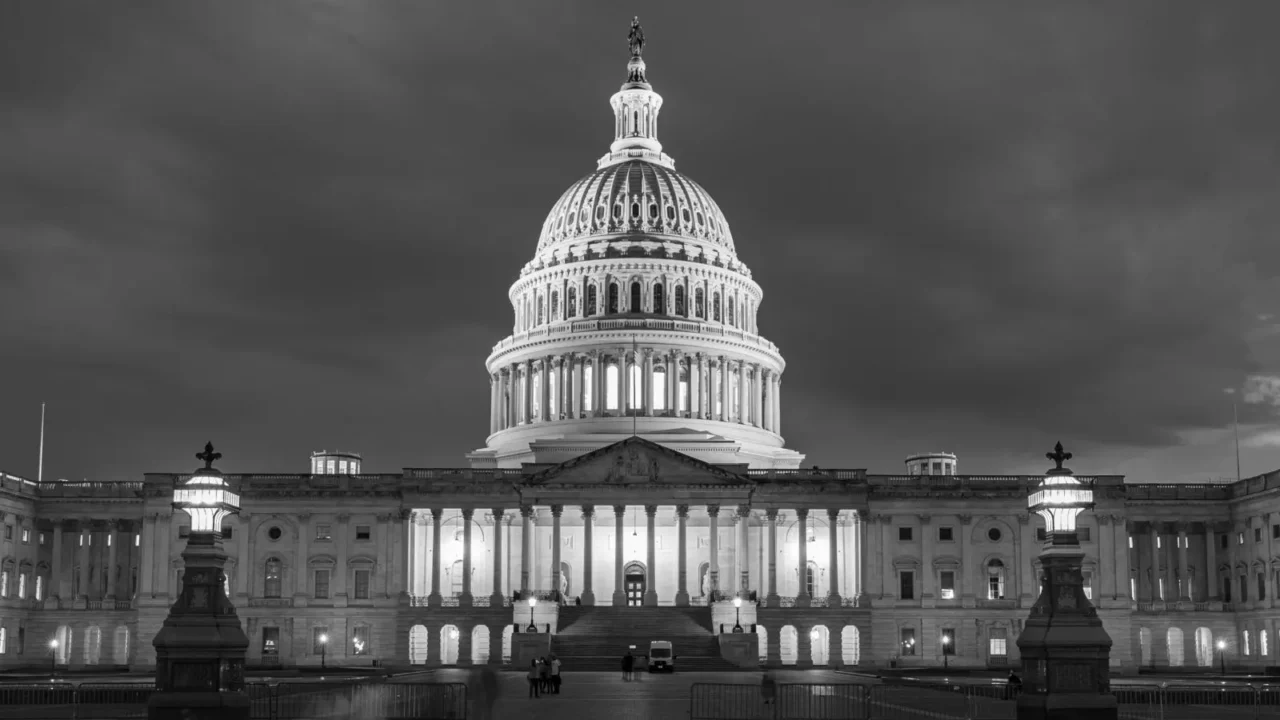When U.S. Sen. Joe Manchin, D-W.Va., and Senate Majority Leader Chuck Schumer, D-N.Y., announced their surprise reconciliation deal that passed in August, the two also came to a separate agreement to hold a vote on a permitting reform bill meant to streamline environmental reviews of critical energy projects throughout the country.
The deal promised a vote by Sept. 30, lining up with the government funding deadline and presenting an opportunity for Manchin to attach his proposal to the must-pass continuing resolution. However, for more than a month after the final reconciliation deal was passed and signed into law, Manchin failed to engage his Republican colleagues on the proposal, resulting in the GOP introducing its own proposal and limiting Manchin’s ability to persuade the needed votes in the Senate.
Manchin’s strategy also provoked progressive Democrats, dissuaded by the strategy of coupling the bill to the continuing resolution and its potential to expedite new fossil-fuel energy projects. More than 80 House Democrats signed a letter opposing the proposal, and several of Manchin’s Senate Democratic colleagues publicly stated their intention to vote against the proposal if it were included in the continuing resolution. This left Manchin speculating that he would need 20 Republican senators to support the proposal for the bill to pass.
With the odds against him, Manchin’s proposal suffered a predictable end in the Senate. Failing to secure the 60 votes necessary to proceed, he requested that Schumer pull his language and move forward with a clean resolution to fund the government through Dec. 16, 2022.
Permitting reform has long been a goal of the construction industry due to untimely delays, frivolous lawsuits and cumbersome regulations to approve and break ground on critical projects that better serve our nation’s communities. But the Manchin bill posed serious issues for the industry, creating a rolling list of 25 projects in the “national interest” that not only would be at the discretion of the president but also would be mandated to adhere to prevailing wage requirements. This would again expand the use of Davis-Bacon prevailing wages into the private sector and limit opportunities for many smaller contractors. The bill was also criticized for its perceived lack of substantial changes needed to effectively reform and expedite the federal permitting process, including the continued exposure of critical projects to frivolous lawsuits and lack of enforcement mechanisms for time limits on environmental reviews.
In contrast, the Simplify Timelines and Assure Regulatory Transparency (START) Act—the GOP-sponsored proposal led by West Virginia’s other senator, Shelley Moore Capito—would address key needs for the construction industry in reforming permitting for critical energy and natural resource construction projects, streamlining the federal process while avoiding unnecessary and overly burdensome considerations that cause significant delays to projects throughout the country. That includes the codification of the 2020 National Environmental Policy Act regulations implemented in 2020, when the Trump administration attempted to modernize the federal environmental review process through the Council on Environmental Quality’s “National Environmental Policy Act Implementing Regulations Revisions,” which provided a coordinated, predictable and transparent method to streamline permitting. The Biden administration’s rulemaking, however, would reverse these efforts and restore policies that have led to delays during the environmental review and permitting process.
The START Act would also codify key elements of the One Federal Decision framework for energy projects, including timely approvals—permitting review schedules for projects that are no longer than two years and placing limitations on the page length of environmental documents. Additionally, by offering clear timelines for litigation and judicial challenges to energy project approvals, the START Act would provide certainty for contractors and developers to plan and execute projects.
With hundreds of billions of taxpayer-dollar investments in transportation and energy infrastructure set for the next 10 years, permitting reform will be key to ensuring that these projects yield their desired results. Much of the funds from both the Infrastructure Investment and Jobs Act and the Inflation Reduction Act live within a five- to 10-year window—keeping in mind that, previously, the completion of important infrastructure projects has been delayed for as long as 20 years.
Whether in this Congress or the next, the START Act can serve as an important jumping-off point for any further negotiations to streamline the federal permitting process and help the construction industry build the critical infrastructure the country needs for the 21st century.







